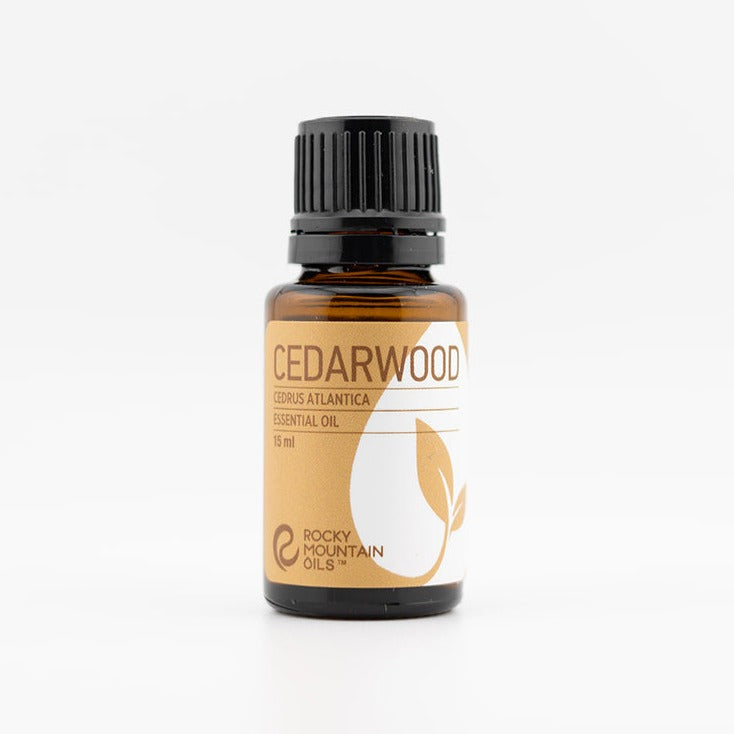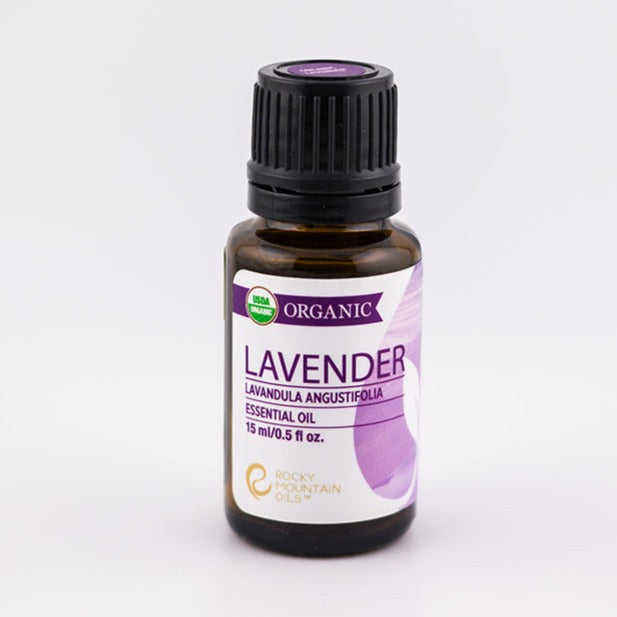What Essential Oils Repel Ticks: Unveiling Nature's Elixir in the Ultimate Guide
What Essential Oils Repel Ticks
Essential oils are not just fragrant essences that enhance our mood or add a pleasant aroma to our environment. They hold the power of nature's intrinsic properties, acting as natural fortresses against many insects, including ticks. Ticks, those pesky blood-sucking arachnids, aren't just a nuisance but a potential threat to our health, carrying diseases like Lyme disease and Rocky Mountain spotted fever. So, let's delve into the essential oils that stand as sentinels against these tiny but formidable foes.

Understanding Ticks and Their Dangers
The Biology of Ticks
Tick biology is both fascinating and slightly unnerving. Understanding their lifecycle from larvae to nymphs and finally to adults is crucial in comprehending how they feed and thrive in various environments. But it's not just about their biology; it's about the potential dangers they present to our health. The various illnesses that ticks can transmit can have long-lasting effects, which makes preventing tick bites an essential task for those enjoying the great outdoors.
Health Risks Associated with Tick Bites
The bite of a tick can do much more than cause a temporary itch. Diseases like Lyme, carried by the black-legged tick, can have chronic implications if not treated promptly. But Lyme is just the tip of the iceberg. Other tick-borne illnesses pose significant health risks, highlighting the importance of effective tick-prevention methods, such as essential oils.
Essential Oils: Nature’s Repellent
The Science Behind Essential Oils and Pests
Nature's pest control comes packed with the compounds of essential oils. The essence that gives plants their distinctive scents is a defense mechanism against pests, including ticks. When utilized correctly, these oils can offer a shield against these arachnids, minimizing the risk of bites and potential diseases.
Top Essential Oils for Tick Repellent
There's a pantheon of essential oils that claim to repel ticks, but not all are created equal. Some have risen to the top based on anecdotal evidence and preliminary studies. These oils include the lemony fresh scent of lemon eucalyptus, the sharp, minty notes of peppermint, the woodsy tones of cedarwood, and the sweet floral aroma of geranium. Each of these oils has its method of repelling ticks, from masking the scents that attract them to directly deterring them with their potent compounds.
Application and Safety
Safe Use of Essential Oils
While the benefits of essential oils are manifold, their safety is not to be taken lightly. Proper dilution is critical to avoiding skin irritation or other adverse reactions. Additionally, there are essential safety precautions to consider when applying these oils to the skin or using them around our homes and pets.
How to Apply Essential Oils for Tick Prevention
Using essential oils for tick prevention is both an art and a science. Whether applying them topically in a diluted form or in diffusers to protect our living spaces, understanding the correct application methods ensures maximum efficacy and safety.
DIY Essential Oil Blends for Tick Repellency
Creating your tick-repellent blends can be a fulfilling and practical project. By combining various essential oils, you can create a personalized shield against ticks. Sharing recipes and storage tips allows for long-term use and the opportunity to make batches for friends and family who also enjoy spending time outdoors.

Expert Insights on Essential Oils and Ticks
Personal Experiences with Essential Oils
There's nothing quite like a personal story to bring the effectiveness of essential oils to life. Individuals who have turned to essential oils for tick prevention often share their experiences, offering a real-world glimpse into the potential of these natural repellents.
Professional Advice on Tick Prevention
Expert input can guide us toward the best practices for using essential oils against ticks. These insights come from entomologists, aromatherapists, and other professionals who have studied the effectiveness of natural repellents and can provide advice on integrating them into a holistic tick prevention strategy.
Comparing Repellents: Essential Oils vs. Others
Chemical vs. Natural Tick Repellents
In the debate between chemical and natural tick repellents, there are staunch advocates on both sides. Essential oils represent a more realistic choice, but how do they stack up against their chemical counterparts regarding effectiveness, safety, and overall user satisfaction? Exploring the pros and cons can help make an informed decision.
Holistic Tick Prevention Strategies
Landscaping to Deter Ticks
Your yard can either be a haven for ticks or a deterrent, depending on how you landscape. Certain plants are known to repel ticks, and how you care for your yard can also play a significant role in keeping tick populations down. Integrating essential oils into this strategy can add another layer of protection.

The Future of Tick Repellency
Advances in Essential Oil Uses
The intersection of traditional knowledge and modern science is where we find the future of tick repellency. As research catches up with anecdotal evidence, we may see new, innovative ways to harness the power of essential oils against ticks.
What is the best essential oil to repel ticks?
The best essential oil to repel ticks is often considered to be cedarwood oil. Cedarwood oil has natural properties that act as a deterrent to ticks and other insects. It can be applied topically to the skin or clothing, diluted in a carrier oil, to help keep ticks at bay. Other essential oils like lavender, eucalyptus, and lemon also have tick-repelling qualities and can be used in combination with cedarwood oil for added effectiveness.
However, it's important to note that while essential oils can be useful for tick prevention, they should not be relied upon as the sole method of protection in tick-prone areas, and additional precautions such as wearing protective clothing and using tick repellent sprays may be necessary.
Does eucalyptus oil keep ticks away?
Eucalyptus oil contains compounds that have been found to have tick-repellent properties, particularly the cineole component. However, its effectiveness as a standalone tick repellent may vary, and it's not as potent as some commercial tick repellents.
It can be used as a natural alternative or in combination with other tick-repelling methods, but it's essential to exercise caution when using essential oils on the skin, especially for children and pets, and consult with a healthcare professional or veterinarian for guidance on tick prevention strategies.

Can I put peppermint oil on my dog for ticks?
While peppermint oil is often used as a natural remedy for repelling ticks and other insects, it's important to exercise caution when using essential oils on dogs. Peppermint oil, when diluted properly and used sparingly, can potentially help deter ticks, but it should never be applied directly to your dog's skin or fur.
Always consult with a veterinarian before using any essential oils on your dog, as their safety and effectiveness can vary based on the individual dog's health, size, and breed. A veterinarian can provide guidance on safe and appropriate methods to protect your dog from ticks and other parasites.
What oil repels ticks naturally?
One natural oil known to repel ticks is cedarwood oil. Cedarwood oil contains compounds that are unpleasant to ticks, and its strong aroma can help deter them. It can be used in various forms, such as diluted in a carrier oil and applied to the skin or added to homemade tick-repellent sprays.
However, it's important to note that while cedarwood oil can be effective, it may not provide complete protection, and it should be used in conjunction with other preventive measures when in tick-prone areas.
FAQs About Essential Oils and Tick Repellency
Can essential oils prevent tick bites entirely?
While essential oils can be effective repellents, no method is 100% foolproof. They should be part of a comprehensive tick prevention strategy that includes proper clothing, chemical repellents if necessary, and regular tick checks.
How often should I reapply essential oil repellents?
It depends on the specific oil blend and your activity level. Generally, it's recommended to reapply every few hours, especially if you are sweating or have contact with water.
Are there any essential oils that should be avoided?
Yes, some essential oils can be toxic if misapplied. For example, oils like tea trees can harm pets, especially cats. Always research and consult with a professional before using a new essential oil.
Can I use essential oils on my pets for tick prevention?
Extreme caution should be used when applying essential oils to pets. Some oils can be toxic to animals, especially cats. Always consult with a veterinarian before using any essential oils on your pets.
Can essential oils be used to treat tick bites?
Essential oils should not be used as a treatment for tick bites. If a tick has bitten you, proper removal of the tick and medical advice should be sought to ensure appropriate care and testing for tick-borne diseases.
Are essential oils safe for children?
Some essential oils can be safe for children, but they should be used with caution and under the guidance of a healthcare provider. Children's skin is sensitive, so proper dilution and patch testing are essential.
Conclusion
Concluding our comprehensive guide on what essential oils repel ticks, we reflect on the importance of using these natural solutions as part of our broader strategy to prevent tick bites and the diseases they carry.




